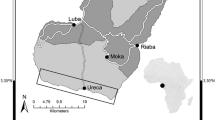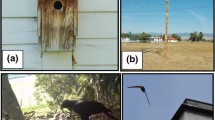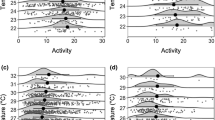Abstract.
For birds with altricial young, the brood-rearing period is one of the most energetically expensive periods in their lives and may be the bottleneck for fitness. Because parents are expected to be prudent in allocating resources between reproduction and self-maintenance, food supply should be an important factor determining reproductive decisions during brood rearing. Parents with abundant food are expected to have enhanced fitness because they are able to reduce their work rates and increase their own survival chances, because their offspring may be of higher quality, or some combination of these. However, few studies have simultaneously documented all of these variables in a single investigation. We performed a food supplementation experiment to test how food supply influenced provisioning decisions by parent American kestrels (Falco sparverius). Female kestrels showed a strong response to extra food and reduced their provisioning rates. As a result, supplemented females had higher return rates than control females, suggesting significant effects of food on female survival. Because females used extra food to increase their fitness, our results suggest that kestrels raising offspring are limited by food. Male kestrels whose nests were supplemented also responded to extra food by reducing provisioning, but to a much lesser extent than their mates. Male parents did not appear to benefit from supplementation, as their return rates were similar to control males. The total amount of food received on a daily basis by nestlings was similar between supplemented and control nests. Supplemented offspring therefore did not fledge in better condition or have higher survival rates than control nestlings; the only significant factor consistently affecting offspring condition and survival was weather.
Similar content being viewed by others
Author information
Authors and Affiliations
Additional information
Electronic Publication
Rights and permissions
About this article
Cite this article
Dawson, R.D., Bortolotti, G.R. Experimental evidence for food limitation and sex-specific strategies of American kestrels (Falco sparverius) provisioning offspring. Behav Ecol Sociobiol 52, 43–52 (2002). https://doi.org/10.1007/s00265-002-0486-y
Received:
Revised:
Accepted:
Issue Date:
DOI: https://doi.org/10.1007/s00265-002-0486-y




